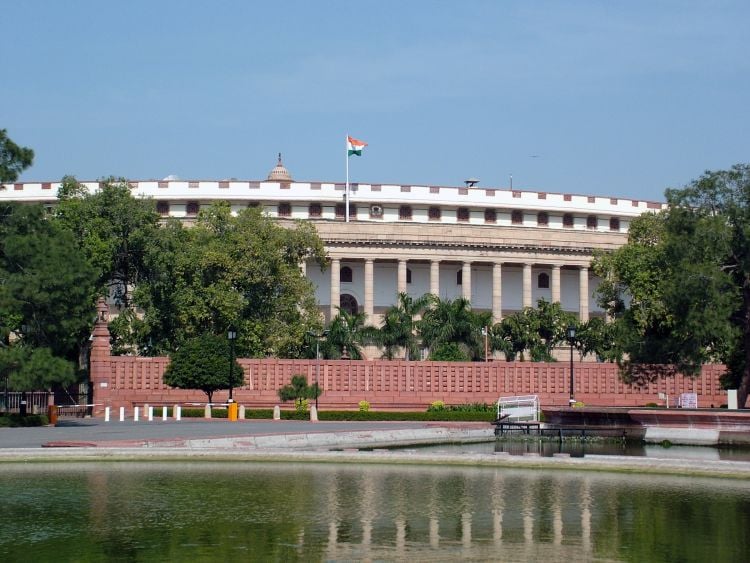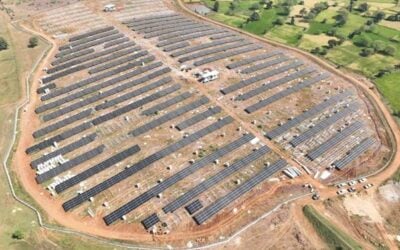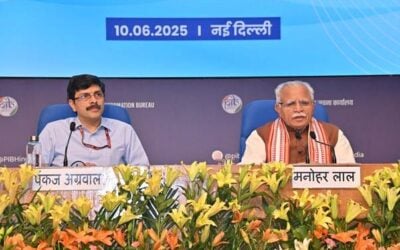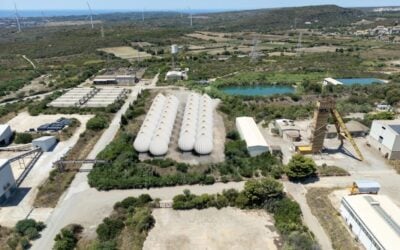
A lack of clarity around India’s recently enforced Goods and Services Tax (GST) Bill has caused a PV tender delay in the state of Gujarat and prompted the nation’s energy storage alliance industry group to write a letter of appeal to the government.
The India Energy Storage Alliance (IESA) has now sent a letter to energy minister Piyush Goyal asking for clarity over taxes on separate segments of cells and batteries.
Enjoy 12 months of exclusive analysis
- Regular insight and analysis of the industry’s biggest developments
- In-depth interviews with the industry’s leading figures
- Annual digital subscription to the PV Tech Power journal
- Discounts on Solar Media’s portfolio of events, in-person and virtual
Rahul Walawalkar, IESA executive director, told Energy-Storage.News that under the GST there is only a category for primary batteries (non-rechargeable) set at 28% tax, whereas there is no specification for secondary batteries.
The IESA letter said: “We believe the rates currently proposed for these components if applicable also to secondary batteries (i.e. rechargeable batteries/energy storage) could hinder the adoption of energy storage in grid applications such as energy access/renewable energy (RE) integration as well as large-scale adoption of electric vehicles (EV) in the country.”
Walawalkar added: “Plus there is some apprehension from some of the international companies that are importing; there will be 10% basic customs duty, so all in, it could end up being 38% duty.”
Many renewable energy components receive a 5% tax and EVs get a 12% tax. Thus, the IESA has recommended that given secondary batteries can be used for both renewables and EVs they should also be given a preferential rate at either 5% or at least the 12% duty.
The letter also said: “Our members including global battery manufacturing companies have expressed concern that the proposed tax slabs for batteries would increase the total cost of batteries by over 10% [against the] current scenario. In developed countries such as [the] US, energy storage systems coupled with renewables are extended same benefits as renewable projects such as Investment Tax Credits (ITC). So the proposed GST rates could significantly put India at a disadvantage in global attractiveness.”
Furthermore the IESA has also recommended that the tax rate on the waste and scrap of spent primary cells and batteries be moved to 5% from its current 18% setting. It also claimed that with more than 1,000MWh of lithium-ion batteries already deployed across telecom towers in India for diesel minimisation, the proposed tax structure could slow momentum.
Back in May, the Indian government announced that it would set solar equipment at the 18% tax rate, causing a huge uproar in the industry and the rate for modules was quickly clarified as just 5%. Because of energy storage’s critical link with renewable energy, the IESA is now hoping for similar GST concessions for both batteries and EVs.
The solar sector is also facing some disruption over uncertainty around the tax on solar components other than modules. Gujarat’s 500MW solar auction is being delayed as a direct result.
In other news, India is now expected to have two or more Gigafactories by 2019 as well as hitting 1GWh of battery assembly facilities within 2017.
The team behind Energy-Storage.News is hosting the 'Energy Storage: Middle East & India' conference in Dubai on 11-12 December 2017. For more information including speaking and sponsorship, contact Oli Amos.






